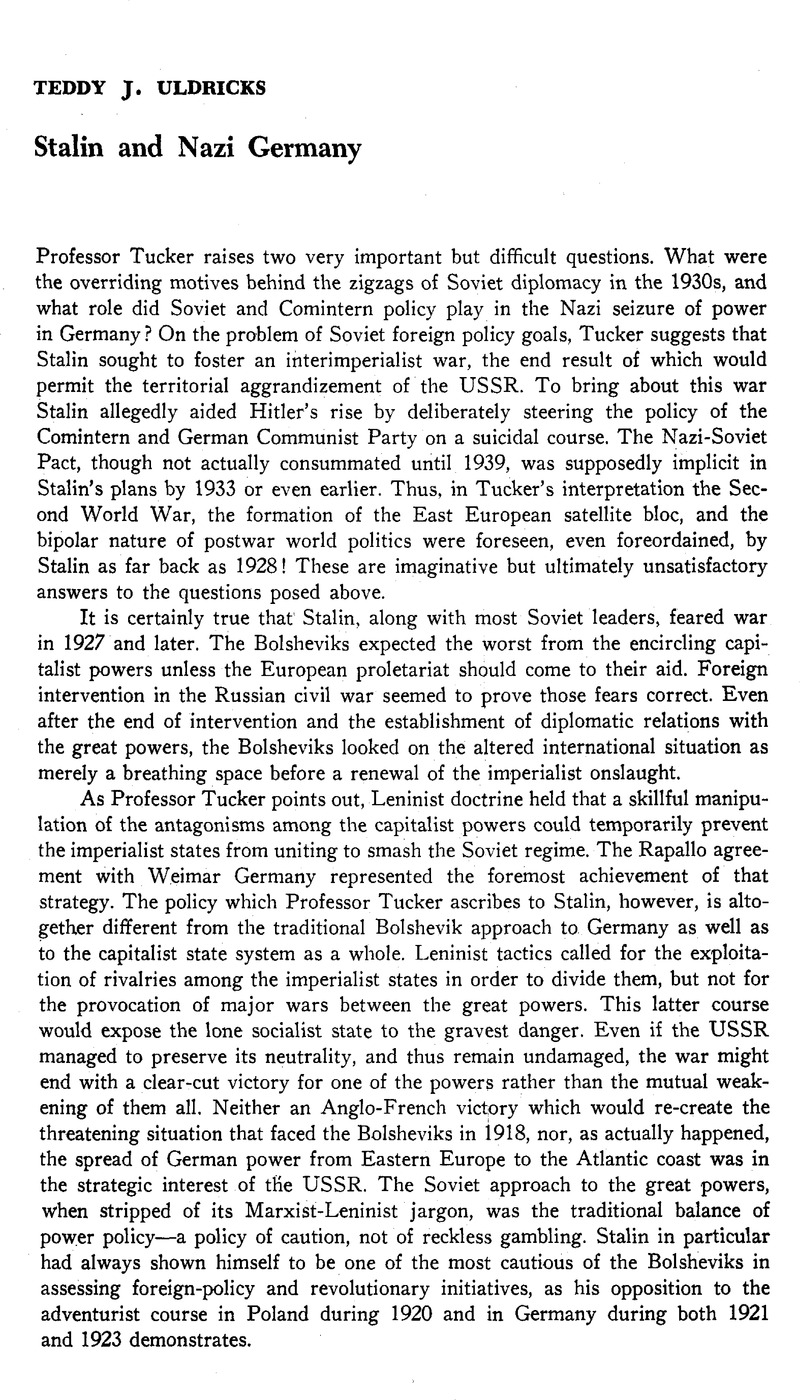Article contents
Stalin and Nazi Germany
Published online by Cambridge University Press: 27 January 2017
Abstract

- Type
- Discussion
- Information
- Copyright
- Copyright © Association for Slavic, East European, and Eurasian Studies. 1977
References
1. See Weinberg, Gerhard L., The Foreign Policy of Hitler's Germany: Diplomatic Revolution in Europe, 1933-36 (Chicago, 1970), p. 12–14.Google Scholar
2. Ibid., pp. 77 ff.
3. See Kochan, Lionel, The Struggle for Germany, 1914-1945 (New York, 1967)Google Scholar, chapter
4. It is unfortunate that Professor Tucker has chosen not to extend his analysis of Stalin's foreign policy to include the conduct of Soviet diplomacy in the 1930s. He has, however, treated this subject in an earlier article. See Tucker, Robert C., “Stalin, Bukharin, and History as Conspiracy,” in Tucker, Robert C. and Cohen, Stephen F., eds., The Great Purge Trial (New York, 1965), pp. ix–xlviii Google Scholar. Here Tucker argues that Stalin never supported the collective security campaign which was supposedly adopted by the Politburo against his will.
5. Coulondre, Robert, De Staline à Hitler (Paris, 1950), p. 165.Google Scholar
6. See Uldricks, Teddy J., “The Impact of the Great Purges on the People's Commissariat of Foreign Affairs,” Slavic Review, 36, no. 2 (June 1977): 187–204.CrossRefGoogle Scholar
7. Also see Slusser, Robert M., “The Role of the Foreign Ministry,” in Lederer, Ivo, ed., Russian Foreign Policy (New Haven, 1962), pp. 214–30 Google Scholar; Kennan, George F., Russia and the West Under Lenin and Stalin (New York, 1961), pp. 288-91, 296 Google Scholar; and Allard, Sven, Stalin und Hitler: Die sowjetrussische Aussenpolitik, 1930-1941 (Bern and Munich, 1974).Google Scholar
- 1
- Cited by


